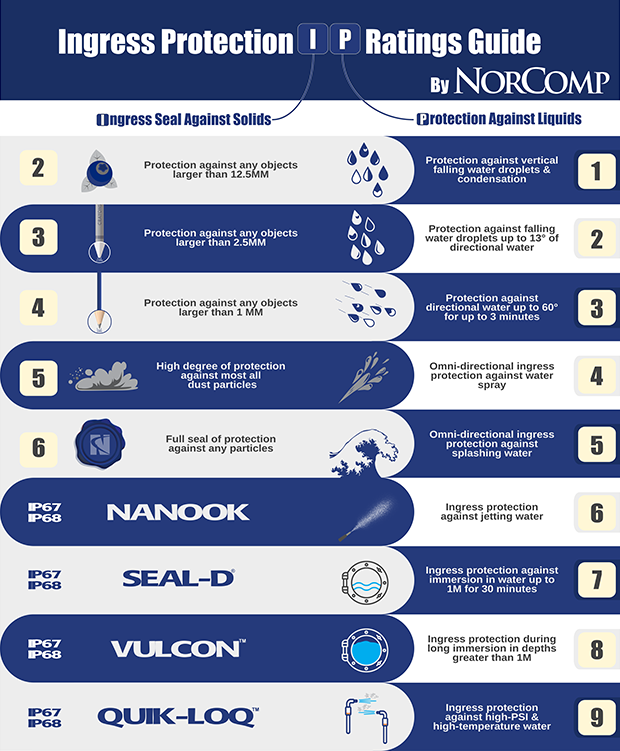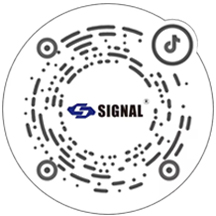
In challenging environments, electronic devices are susceptible to damage from contaminants like dust, moisture, and chemicals. Ingress Protection (IP) rated connectors are specifically engineered to safeguard electrical connections against such intrusions, ensuring consistent performance and longevity.
Understanding Ingress Protection (IP) Ratings:
IP ratings, defined by the International Electrotechnical Commission (IEC) under standard IEC 60529, classify the degree of protection provided by enclosures against the ingress of solid objects and liquids. An IP rating consists of two digits:
· First Digit (0-6): Indicates protection against solid particles, with '6' representing complete dust-tight protection.
· Second Digit (0-9): Denotes protection against liquids, where higher numbers correspond to increased resistance, such as protection against powerful water jets or immersion.
For instance, an IP67-rated connector is entirely dust-tight and can withstand temporary immersion in water up to 1 meter deep.
Environments Requiring IP-Rated Connectors:
1. Industrial Settings: Manufacturing facilities often expose equipment to dust, lubricants, and varying temperatures. Connectors with ratings of IP65 or higher are essential to prevent dust ingress and withstand water exposure from cleaning processes.
2. Marine Applications: Marine environments present challenges such as saltwater exposure, humidity, and temperature fluctuations. IP68-rated connectors are ideal, offering complete dust protection and the ability to endure continuous submersion, ensuring reliability in harsh maritime conditions.
3. Outdoor Installations: Equipment used outdoors, like surveillance cameras and communication systems, faces rain, snow, and dust. IP66-rated connectors provide robust protection against heavy rain and airborne particles, maintaining system integrity in diverse weather conditions.
4. Automotive and Transportation: Vehicles and transportation systems encounter road debris, water splashes, and temperature variations. Connectors with IP67 ratings are commonly employed to ensure electrical systems remain unaffected by these environmental factors.
5. Medical Equipment: Medical devices require connectors that can withstand rigorous cleaning and sterilization processes involving liquids and disinfectants. IP-rated connectors ensure that these devices maintain their functionality and hygiene standards.
Selecting Appropriate IP-Rated Connectors:
When choosing connectors for harsh environments, consider the following factors:
· Environmental Exposure: Assess the presence of dust, water, chemicals, and temperature extremes to determine the necessary IP rating.
· Mechanical Stress: Evaluate the potential for physical impacts or vibrations that may affect connector integrity.
· Electrical Requirements: Ensure the connector meets the voltage and current specifications of your application.
For tailored solutions that meet the rigorous demands of your specific applications, Shenzhen Signal Electronics Co., Ltd. offers a comprehensive range of IP-rated connectors. Our expertise and commitment to quality ensure that you receive connectors designed to perform reliably in even the most challenging environments.






